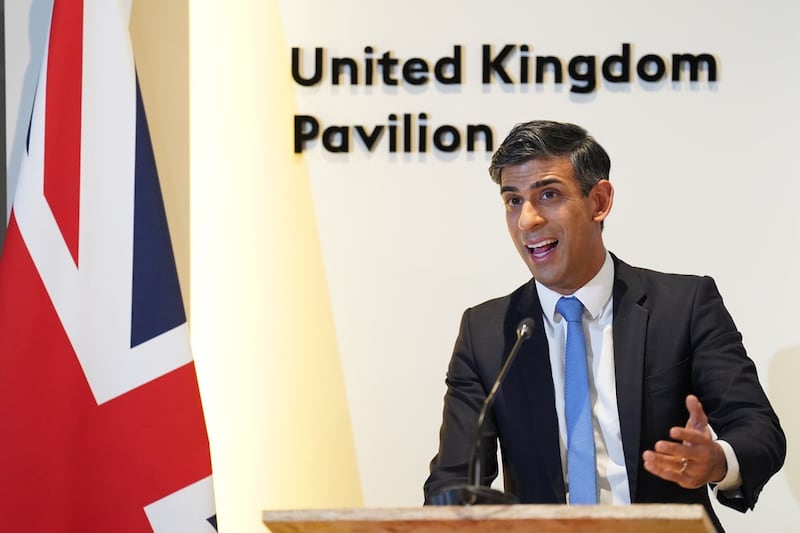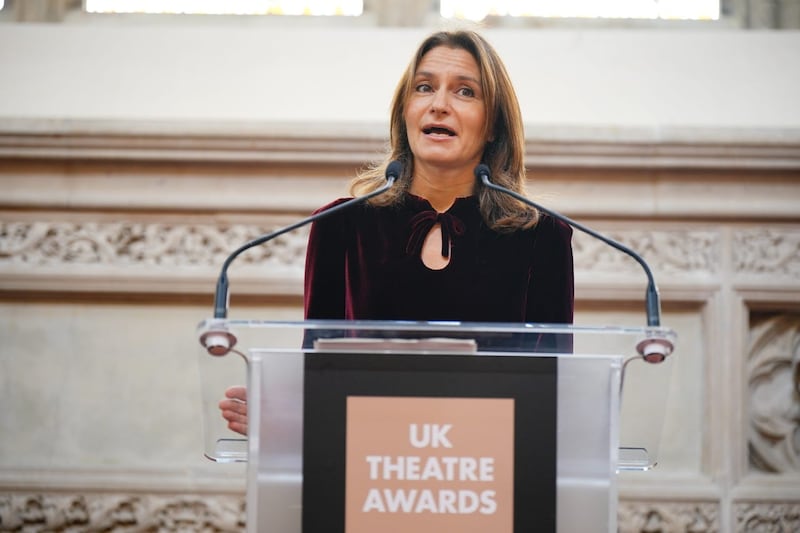The freeze on the BBC licence fee is due to come to an end in April 2024, prompting a £15 rise in the annual charge.
However, it has been reported that Rishi Sunak is set to block a 9% hike in the fee.
– What is the current licence fee?
The licence fee is currently £159 per year and is due to increase by 9% or £15 to £173.30 in April.
– What could happen next?
Prime Minister Rishi Sunak told reporters over the weekend that the BBC should be “realistic about what it can expect people to pay at a time like this”, hinting he is set to block a 9% rise in the annual charge.

Culture Secretary Lucy Frazer has said that a £15 rise would be “high”.
The Sunday Times reported that Ms Frazer is considering using September’s consumer prices index (CPI) rate of inflation, rather than the higher 12-month average, to calculate how much the cost of the licence fee should rise by.
Using September’s inflation rate of 6.7%, the licence fee would be expected to rise by £10.65 to £169.65 per year.
The culture secretary has confirmed she will make the final decision soon on what the fee should be.
– What would it mean for the BBC?

The corporation is seeking to make £500 million of savings in the face of high inflation and the two-year freeze on the fee, which provides most of its funding.
If the price rise does not go ahead the BBC would be put under further financial pressure.
The corporation previously announced its nightly current affairs show Newsnight will be reduced to a 30-minute programme, axing more than half of the show’s 60 jobs, as part of the cost-cutting measures in its news output.
An extended hour-long edition of BBC News At One will relocate to Salford while BBC Breakfast, also broadcast from Salford, will be extended by an extra 15 minutes daily.
The corporation expects the raft of changes to save the news division £7.5 million.
Earlier this year the BBC also announced it would broadcast 1,000 fewer hours of new TV programmes this year as part of a drive to save money.
Other cost-cutting measures include moving a number of World Service TV and radio broadcast services online, and merging the domestic and global news channels.
– What are the alternative options?
A subscription model, as used by streaming services such as Netflix, has long been touted as an alternative to the licence fee.
Streaming giants including Disney+ and Netflix have already announced price increases.
For Netflix’s most expensive ad-free service, the price will go up to £17.99 per month in the UK (£215.88 at year). The basic plan is rising by £1 a month to £7.99 a month.
Disney+ also recently announced a major restructuring of its subscription plans, with an ad-supported tier introduced in the UK from November 1.
All existing Disney+ customers have automatically been moved to its top-tier premium subscription package, priced at £10.99 per month or £109.90 per year, unless they actively switch to another plan.
Apple TV+ currently costs £8.99 a month, after an increase of £2 from £6.99 a month.
Other touted options as alternatives to the licence fee include a broadband levy and even advertising.








